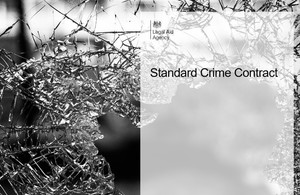-
Charities are being urged to join the voluntary, community and social enterprise (VCSE) Health and Wellbeing Alliance
-
Refreshing the membership will ensure strong representation to reduce health inequalities
-
Closing date for applications is midday on 6 November 2020. Application support webinars will be run in September
Charities are being urged to join the voluntary, community and social enterprise (VCSE) Health and Wellbeing Alliance, following its relaunch on Saturday 15 August, to ensure the lived experiences of the people they represent are reflected in the development of health policy.
The Health and Wellbeing Alliance is a key element of the Health and Wellbeing Programme, the aim of which is to promote health equalities and reduce health inequalities across the UK.
The alliance is a partnership between the Department of Health and Social Care (DHSC), NHS England and Improvement, Public Health England and 20 voluntary sector partners and consortia, including Age UK, Carers UK, LGBT foundation and the Race Equality Foundation.
The alliance ensures the voice of lived experience is incorporated early in policy development, and that important health and public health announcements and messages are shared through reaching communities who may be directly impacted via direct consultation.
Minister for Prevention, Public Health and Primary Care Jo Churchill, said:
The Health and Wellbeing Alliance is an excellent way to ensure a range of voices are heard and reflected in government policy. Over the last 3 years members have made an enormous contribution to a number of important policy developments.
This relaunch is a fantastic opportunity to ensure that we not only continue to hear from the most underrepresented voices, but also allows us a refresh, so that important health messages reach those they affect the most.
Alex Fox, former chair of the VCSE Review and CEO of Shared Lives Plus, said:
This year we’ve seen how charities, social enterprises and community groups are vital to mobilising communities to keep people safe and well.
The government‘s renewed commitment to the Health and Wellbeing Alliance is very welcome at a time when, more than ever, the most vulnerable people and communities need government and community organisations to work effectively together.
The alliance ensures that the voice of communities facing the most challenging health inequalities are central to health and care policy making.
The alliance has already helped shape policy making. For example, when DHSC needed insight and input on a new autism commissioning model, the Complex Needs Consortium held a consultation with health and social care commissioners, autistic people, families, friends and carers to develop draft guidance to improve the way autistic people are supported.
The alliance has been and continues to play a critical role in informing policy development and cascading messaging during this unprecedented period.
Alliance members Homeless Link, for example, played a pivotal role in communication guidance and information to the homelessness sector around COVID-19. While central government guidance was being rapidly developed, Homeless Link hosted weekly webinars to share good practice and hear from the sector about the issues they were experiencing, providing a vital 2-way communication stream.
The work of the alliance will continue to be of the utmost importance as we look to the future to tackle these disparities and protect our most vulnerable communities. For example data shows black, Asian and minority ethnic communities (BAME) have been disproportionately affected by the COVID-19 pandemic.
Refreshing the membership now will ensure the alliance has the greatest possible representation and that their voices are heard by government.
Membership to the alliance is awarded through a competitive tendering process.
Members receive grant funding on an annual basis of up to £80,000 for their core work.
Applications are invited from 15 August, and close at midday on 6 November.
A Meet the Funder webinar series for interested parties to hear more about the series and ask questions will run from 1 to 3 September.
Read more information on webinars and application support.


